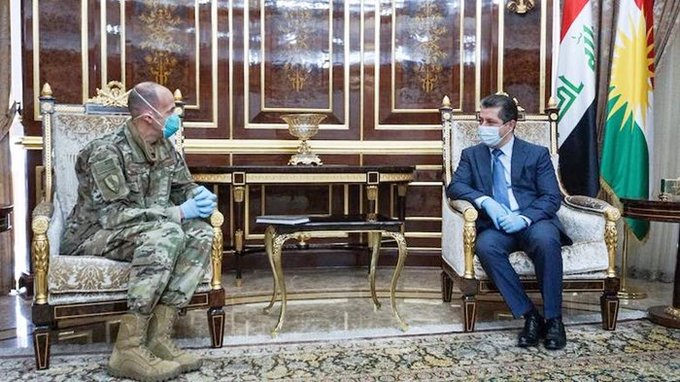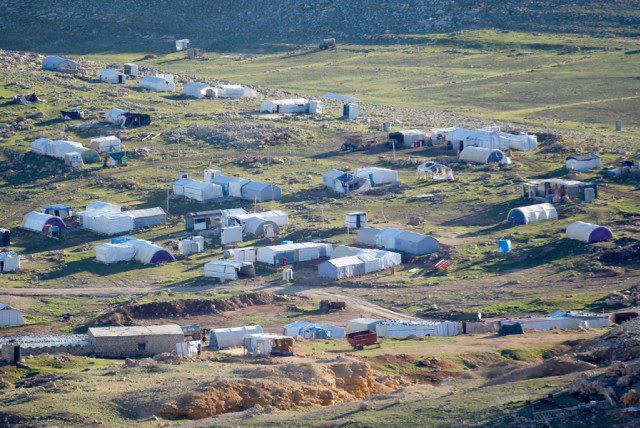Mike Head (WSWS) reports:
Today marks a decade since a cabal of Labor Party and trade union powerbrokers, acting on behalf of the US embassy, carried out what amounted to a backroom, inner-party coup to remove Prime Minister Kevin Rudd and install his deputy, Julia Gillard, as his replacement.
In all the media coverage of the 10th anniversary, there is not so much as a hint of the fact that the chief instigator was Washington, relying on its “protected sources” inside the Labor and union apparatus.
Gillard suddenly announced a leadership challenge on the night of June 23, 2010, and Rudd was gone by the next day. Knowing that the numbers—and other forces—were stacked against him, Rudd did not even contest the ballot inside Labor’s parliamentary caucus, so Gillard was declared elected unopposed.
Millions of working people were profoundly shocked by the anti-democratic operation. Literally overnight, a handful of factional warlords engineered Rudd’s ouster, entirely behind the backs of the population. The intervention came less than three years after Rudd had taken office through the landslide defeat of the hated Howard Liberal-National Coalition government.
Just days later, in a statement issued on June 28, 2010, the Socialist Equality Party drew attention to the far-reaching political implications of what had happened. The SEP explained: “[T]he coup has demonstrated that so-called parliamentary democracy does not represent the interests of the people, but is a screen for the operations of corporate and financial interests that are the real wielders of political power. Furthermore, it has underscored that the Labor Party has no connection whatsoever with the broad mass of working people, but is the political instrument of these same interests.”
The SEP was alone in warning that the coup revealed the kind of dictatorial methods to which the ruling elite was turning as a result of the mounting US confrontation with China, aggravated by the global financial crisis of 2008-09—then the deepest economic breakdown since the 1930s.
The SEP explained that since establishing its global dominance in World War II, US imperialism had intervened repeatedly in Australia during periods of political and economic turmoil. This had been demonstrated most significantly in the Canberra Coup that ousted the Labor government of Gough Whitlam in November 1975. The statement warned that, as in 1975, the highest levels of the state apparatus and the American CIA “were either directly involved in, or at least had knowledge of, the ousting of Rudd.”
Less than six months later, this analysis was confirmed in the most graphic fashion. Secret US diplomatic cables published by WikiLeaks in December 2010 revealed that “protected sources” of the US embassy were pivotal figures in Gillard’s elevation. For months, key coup plotters, including senators Mark Arbib and David Feeney, and Australian Workers Union (AWU) chief Paul Howes, secretly provided the US embassy with regular updates on internal government discussions and divisions within the leadership.
Gillard was awful and they still celebrate her as a success because she was a first.
There's a whole end to the article that I feel was said better years ago by Ava and C.I. when they reviewed Geena Davis' Commander-In-Chief:
What really frightens us, besides the fact that a backlash only takes root when people who should know better applaud this junk, is an elitist attitude that seems to greet this show.
"We got our woman president!"
Consider us too grass-rooty but we don't see that as an end all be all. We weren't among the ones saying "At least we still got Martin Sheen on TV" so maybe we're missing it. But honestly, we'll take an Alice over a Commander-in-Chief. Give us working class women who pull together over a queen bee living a rarified life.
We've never doubted that a woman could be president (and at some point will be). But we've never assumed that gender would be an answer. A woman who supports equality? Absolutely, that's a great thing. A woman who makes her way as an exception, backs up an agenda she doesn't believe in and does nothing to help other women? We don't see the point in applauding that.
It's a pertinent issue as two women are repeatedly named as potential candidates in the real world: Condi Rice and Hillary Clinton. If either woman (or both) runs, will we get the same giddy "It's a woman!" nonsense? Under no circumstance would either of us vote for Rice. We'd be reluctant to vote for Clinton considering her waffles on the issue of choice and her stance on the war. But will those issues be silenced in the giddy cry of, "It's a woman! It's a first!"
That's troubling.
We bounced ideas for this review off a number of feminist friends. The only trace of "feminism" anyone could find in Commander-in-Chief was one woman who noted that the episode that aired Tuesday featured Mac telling her teenage daughter that she wasn't a virgin when she married.
So feminism is now defined by when you lost your cherry? Our culture's back to pimping Hugh Hefner as a voice of "liberation"?
While it's true that Bully Boy has lowered the expectations for the nation, we're not willing to drop our principles and then limbo beneath them. It's depressing to realize how quickly we've gone from The Ya Ya Sisterhood to The Nah Nah Sisterhood.
That's a few months shy of 15 years. Wow. Ava and C.I. have a body of work that is something to be proud of. I would include their latest "TV: Where's the pride?" and strongly recommend you read it.
Prime Minister Mustafa al-Kadhimi will visit Washington next month to attend high-level talks between the United States and Iraq, foreign minister Fuad Hussein revealed on Tuesday.
Kadhimi's visit will begin the second round of strategic dialogue talks between the US and Iraq that are the first of their kind in more than a decade. They aim to put all bilateral issues on the table, including the faltering Iraqi economy and the possible withdrawal of US troops.
US Secretary of State Mike Pompeo announced on April 8 that the US and Iraq plan to hold meetings starting in mid-June to discuss several matters, including “the future presence of the United States forces in [the] country and how best to support an independent and sovereign Iraq,” Pompeo said at a Washington press briefing on April 8.
Hussein revealed the planned visit to Washington while receiving UN envoy Jeanine Hennis-Plasschaert in Baghdad on Tuesday to discuss the strategic dialogue, among other topics.
The geopolitics are complex, but they are also crude. Turkey has clout; President Erdoğan has several cards to play.
Card one: refugees. Turkey is host to 3.5 million refugees, many of whom would rather go to Europe. For Erdoğan they are a weapon that can be unleashed at any time on the EU and its neighbours. The countries of Europe have domestic, populist, political imperatives for keeping migrants out that trump humanitarian (and economic) reasons for letting them in.
Card two: Turkey is a powerful member of NATO, with the second-largest army of all members and housing 50 US nuclear bombs. It’s the world’s fifth-largest buyer of arms, 60 per cent coming from the US and plenty from the UK, France, Spain and Russia.
Turkey also invests lavishly in lobbying power, spending $6.6 million on influencing the US government in 2018. It is seen as a tricky but strategic ally in the US’s so-called ‘war on terror’ – even though it is supporting jihadist militants with al-Qaeda connections.
Card three: Turkey has nation-state power. Nation states have a mutual understanding. They can have their own armies, without being called terrorists. They can lock up journalists and political opponents, and still be welcome at the table of world democracies. They can displace thousands of citizens and still be courted as a valuable trading partner.
Iraqi Foreign Minister Fuad Hussein on Tuesday renewed his country's rejection and condemnation of the Turkish attacks on targets in northern Iraq.
Hussein's comments came during his meeting with the Special Representative of the UN Secretary-General for Iraq Jeanine Hennis-Plasschaert in his office in the Foreign Ministry at the edge of the Green Zone in central Baghdad, a ministry statement said.
Hussein underlined the need "to stop such violations by the Turkish side, considering the attacks as violating the international covenants and laws," the statement said.
The Iraqi government is currently preparing for “early legislative elections” to complete the country’s sustainable constitutional establishment, Prime Minister Mustafa Al-Kadhimi, announced yesterday.
Speaking in a meeting with the United Nations Special Representative for Iraq, Jeanine Hennis-Plasschaert, Al-Kadhimi said that it is “important to have international support and cooperation in the preparation phase.”
We are so excited to announce the launch of Ms. magazine's very first podcast, On the Issues with Michele Goodwin!
You read Ms. online and in print. You follow along on social media. Now, keep up with the feminist movement and even more of Ms.’s substantive, unique reporting with your new favorite podcast.
Tune in for our premiere episode on Tuesday, June 30 on Apple Podcasts, Spotify, Stitcher, Google Podcasts or MsMagazine.com. 
Get a sneak peek of the feminist analysis, insightful conversations and exciting guests to come: a trailer is available now! We hope you’ll give it a listen, subscribe and rate the podcast.
On the Issues is a show where we report, rebel, and tell it like it is. Join host Dr. Michele Goodwin as she and special guests tackle the most compelling issues of our times, centering your concerns about rebuilding our nation and advancing the promise of equality.
Listen to a trailer for On the Issues with Michele Goodwin now — on Apple Podcasts and Spotify.
And we’d love if you help spread the word, too! The number one thing you can do to help the Ms. magazine podcast reach new listeners? Subscribe and rate the podcast on Apple. Let’s show the power of independent, feminist media!
Meet Your On the Issues Host: Dr. Michele Goodwin is a frequent contributor to Ms. magazine and on MsMagazine.com. She is a Chancellor’s Professor at the University of California, Irvine and also serves on the executive committee and national board of the ACLU. Dr. Goodwin is a prolific author and an elected member of the American Law Institute, as well as an elected Fellow of the American Bar Foundation and the Hastings Center. Her most recent book, Policing The Womb: Invisible Women and The Criminalization of Motherhood, is described as a "must read."
Tune in Tuesday, June 30 for the first episode of On the Issues with Michele Goodwin: Police Violence — A Tale of Two Genders. Professor Goodwin and her guests will ask critical questions like: where are the women in the field of policing? And why does it matter?
You have received this e-mail because of your interest in women's issues. To unsubscribe, please click here.
1600 Wilson Boulevard, Suite 801, Arlington, VA, 22209 | 703.522.2214 | webmaster@feminist.org
- Truest statement of the week
- Truest statement of the week II
- A note to our readers
- Editorial: Who will speak out on behalf of the Kurds?
- TV: Where's the pride?
- John Bolton is a War Criminal, he is not your friend
- 100 scariest movies
- Mail bag
- This edition's playlist
- Introducing the Ms. Podcast: On the Issues with Mi...
- Diana Ross - It's My House (Eric Kupper Remix / Au...
- #TheJimmyDoreShow Hillary Supporter demands Hillar...
- Race, Class and Anti-Imperialism in the USA w/Blac...
- #MOATS EXCLUSIVE: Green candidate Howie Hawkins sl...
- Highlights






